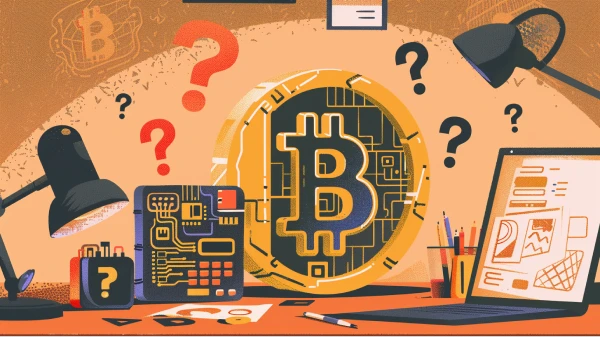Can Bitcoin Be Hacked or Duplicated?
Bitcoin has often been called “digital gold” because of its security and value. But for beginners exploring cryptocurrency, one question looms large: Can Bitcoin be hacked or duplicated? Let’s break it down in a way that’s easy to understand.
Bitcoin’s Built-In Security: Why Hacking Is Nearly Impossible
Bitcoin operates on a decentralized system called the blockchain. Each transaction is recorded on a public ledger and verified by a network of computers known as nodes. This decentralization means there’s no single point of failure, making Bitcoin incredibly resistant to hacking.
Here are the key reasons Bitcoin is secure:
Cryptography
Bitcoin uses advanced cryptographic algorithms to secure transactions. When you send or receive Bitcoin, your private keys and wallet address ensure only you can access your funds.
Proof-of-Work Mechanism
Bitcoin miners solve complex mathematical puzzles to validate transactions. This process, called Proof of Work, requires immense computational power, making it nearly impossible for hackers to alter or reverse transactions.
Decentralization
With thousands of nodes scattered worldwide, a hacker would need to control more than 50% of the network’s computing power (a 51% attack) to compromise the blockchain. This is highly unlikely due to the enormous costs and resources required.
Can Bitcoin Be Duplicated?
One of Bitcoin’s core strengths is that it cannot be duplicated. Here’s why:
Double-Spending Problem Solved
Bitcoin’s blockchain ensures that each coin can only be spent once. Transactions are timestamped, validated, and added to the blockchain in chronological order.
Unique Ledger Entries
Each Bitcoin transaction has a unique digital signature, making duplication impossible. Even if someone tried to forge a transaction, the network would reject it as invalid.
Are There Risks to Bitcoin?
While Bitcoin itself is highly secure, vulnerabilities often arise from human error or third-party services:
Hacks on Exchanges
Cryptocurrency exchanges, where users buy and sell Bitcoin, can be targets for hackers. Keeping your Bitcoin in a secure hardware wallet rather than on an exchange can help protect your funds.
Phishing Scams
Scammers may trick users into revealing their private keys or passwords. Always double-check websites and emails before entering sensitive information.
Software Vulnerabilities
While rare, bugs in wallet software or related systems could potentially expose funds. Regularly updating software is critical.
Why Bitcoin’s Design Matters
Bitcoin’s architecture was designed with security in mind. Since its launch in 2009, the network has proven to be one of the most secure systems ever created. Even as the cryptocurrency market grows, Bitcoin’s blockchain remains a fortress of trust.
Final Thoughts
Bitcoin cannot be hacked or duplicated due to its decentralized nature, cryptographic security, and transparent blockchain. However, users must take precautions to secure their wallets and accounts.
As cryptocurrency adoption grows, understanding how Bitcoin’s security works is crucial for making informed decisions. With the right knowledge and tools, you can confidently navigate the world of Bitcoin and its endless possibilities.

